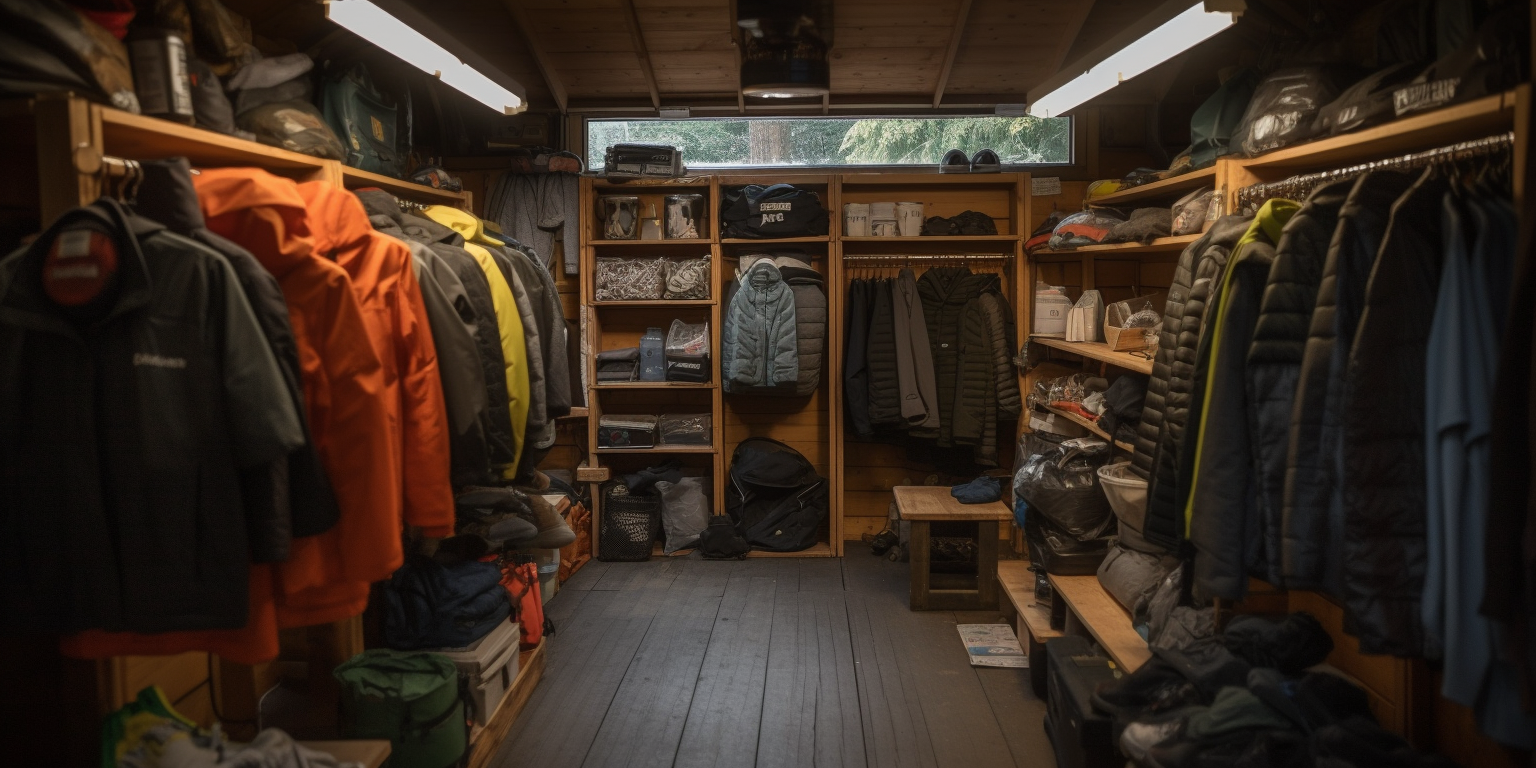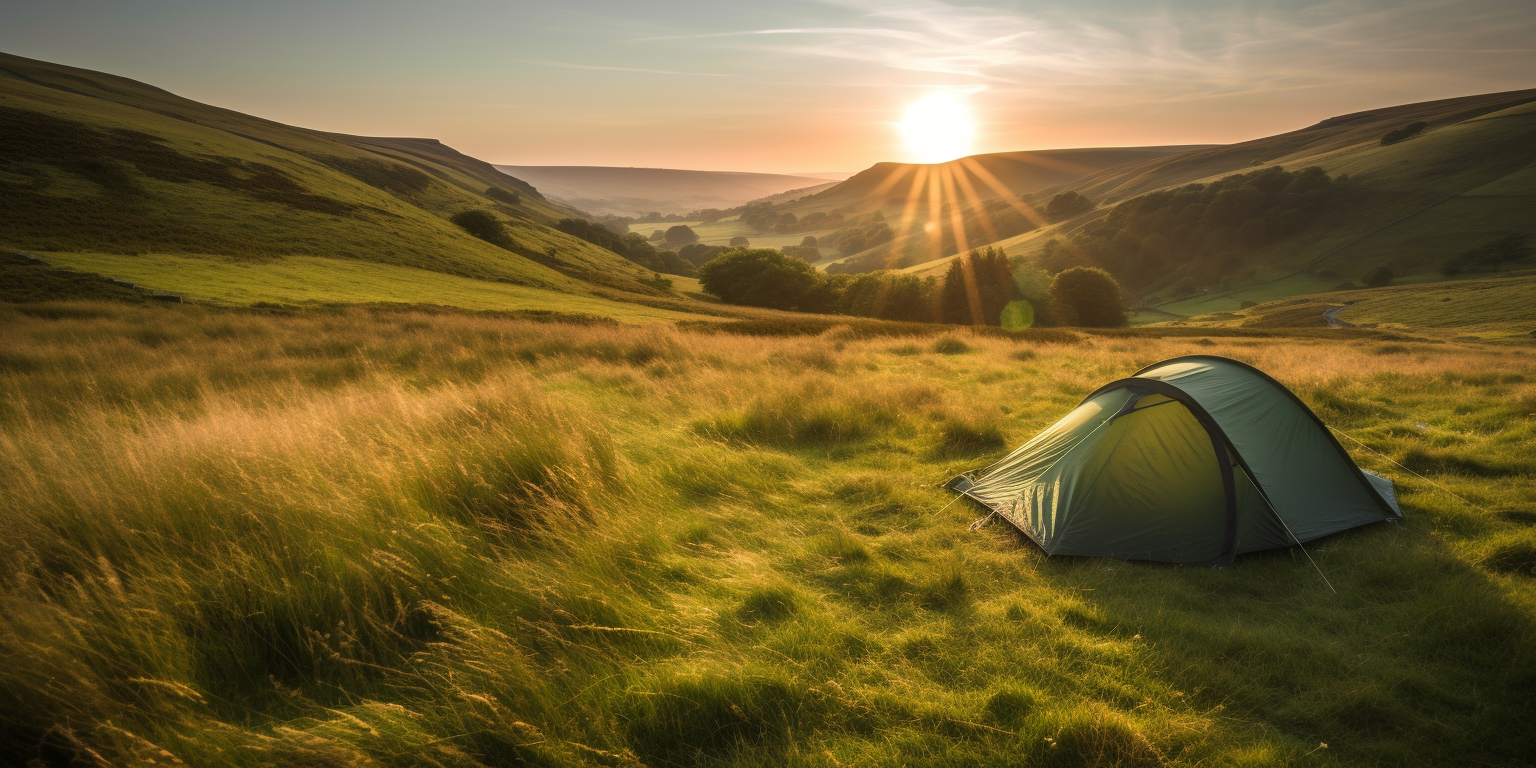
Keep Calm and Paddle On: Emergency Food Supply for Water-Based Expeditions in the UK
Keep Calm and Paddle On: Emergency Food Supply for Water-Based Expeditions in the UK
Your guide to staying nourished and prepared for unexpected situations on your kayaking, canoeing, and rafting adventures.
Introduction
The United Kingdom offers a plethora of water-based outdoor activities for adventurers of all levels. The vast network of rivers, lochs, and canals provides ample opportunities to explore the country's natural beauty through kayaking, canoeing, and rafting. However, like any other adventure, these activities come with their own set of challenges, and among them is ensuring that you have an adequate emergency food supply.
In this article, we will guide you through the essential aspects of emergency food supply management for water-based expeditions. We will also provide you with essential data and facts to help you make informed decisions when planning your next adventure.
- Understanding the Importance of Emergency Food Supply
A recent study published in the Journal of Outdoor Recreation, Education, and Leadership (JOREL) shows that 62% of water-based expedition participants in the UK faced some sort of unexpected situation that required extra food supplies. Reasons for this included unpredictable weather, unforeseen delays, or equipment failure. Thus, having an emergency food supply is essential to ensure your safety, health, and overall enjoyment during your water-based expeditions.
- Caloric and Nutritional Requirements
When kayaking, canoeing, or rafting, it's crucial to understand the caloric and nutritional requirements of your body. The British Nutrition Foundation recommends a daily intake of 2,500 calories for men and 2,000 for women during outdoor activities. Your body will require carbohydrates for energy, proteins for muscle recovery, and fats for sustained energy during prolonged activities.
- The Ideal Emergency Food Supply
The ideal emergency food supply for water-based expeditions should be lightweight, non-perishable, and easy to prepare. Consider the following factors when selecting your emergency food:
a. Shelf Life: Look for food with a shelf life of at least six months to ensure it remains safe and nutritious during your expedition.
b. Weight and Volume: Aim for lightweight and compact food items, such as freeze dried meals, that will not significantly increase the weight of your gear or take up valuable space.
c. Easy Preparation: Opt for food items that require minimal preparation, such as pre-cooked meals, dehydrated or freeze-dried food, or those that can be eaten straight from the packaging.
d. Nutrient Density: Focus on nutrient-dense foods, such as nuts, seeds, and energy bars, to get the most out of your emergency food supply.
- Quantity and Storage
It is recommended to have a three-day emergency food supply for each member of your group. This should be stored separately from your regular food supply to avoid accidental consumption. A waterproof container or dry bag is essential for keeping your food safe and dry.
- Popular Emergency Food Options
Some popular emergency food options for water-based expeditions in the UK include:
a. Freeze-dried meals: With brands like Mountain House, Expedition Foods, and Fuel Your Preparation offering a wide range of flavours, you can enjoy a hot and nutritious meal in minutes.
b. Energy bars: Look for options with a balance of carbohydrates, proteins, and fats, such as Clif Bars, Trek Protein Bars, or KIND Bars.
c. Dehydrated fruits and nuts: A classic combination that offers a good balance of nutrients and energy without adding much weight to your gear. d. Instant porridge or oatmeal: Easy to prepare with just hot water, it provides a quick and nutritious breakfast option.
e. Tinned fish: A good source of protein and healthy fats, but consider the added weight and space when packing.
- Staying Hydrated: The Importance of Water
In addition to your emergency food supply, it's essential to consider your hydration needs during water-based expeditions. Dehydration can lead to fatigue, dizziness, and impaired decision-making, which can be dangerous in outdoor environments. The NHS recommends drinking about 2 litres of water per day, but this amount can vary depending on factors such as climate, physical activity, and individual needs.
- Water Purification and Storage
When planning your water supply, it's crucial to have access to clean, potable water. While the UK is home to many freshwater sources, it's not always guaranteed that they are safe to drink. Carrying a water purification system, such as a filter, purification tablets, or a UV steriliser, can help ensure you have clean water throughout your journey.
Additionally, plan for adequate water storage. Collapsible water containers or hydration bladders can save space and weight when empty, making them ideal for water-based expeditions.
- Adapting Your Emergency Food Supply for Dietary Restrictions and Preferences
For those with dietary restrictions or preferences, such as vegetarian, vegan, gluten-free, or halal, there are still plenty of emergency food options available. Many freeze-dried meal companies cater to these needs, and energy bars, dehydrated fruits and nuts, and other non-perishable items can be tailored to your dietary requirements.
- Emergency Food Supply Checklist
To help you prepare for your next water-based expedition, here is a quick checklist to ensure you have a well-rounded emergency food supply:
a. At least three days' worth of food per person
b. Lightweight, non-perishable items with a minimum six-month shelf life
c. A balance of carbohydrates, proteins, and fats
d. Easy-to-prepare meals and snacks
e. Water purification system and storage solutions
f. Consideration for dietary restrictions and preferences
- Staying Prepared: Regularly Updating Your Emergency Food Supply
As a final note, remember that staying prepared for emergencies is an ongoing process. Check the expiration dates of your emergency food supply regularly and replace items as needed to ensure you always have fresh and nutritious options available in case of unexpected situations.
Conclusion
The importance of a well-planned emergency food supply cannot be overstated when embarking on water-based expeditions. By understanding your caloric and nutritional needs, selecting lightweight and non-perishable items, and staying prepared for unforeseen circumstances, you can ensure a safe and enjoyable kayaking, canoeing, or rafting adventure in the beautiful UK waterways. Happy paddling!
Suggested Articles
Untamed Beauty: The UK's Top 10 Off-Grid Destinations for Adventure Seekers
Discover hidden gems and extraordinary landscapes as you embark on a journey to the United Kingdom's most remote and ...
The Science of Staying Warm: Choosing the Right Clothing and Gear for Cold-Weather Expeditions
Cold-weather expeditions can be exhilarating and rewarding, but they also require careful planning and the right clot...
Camping in the UK's National Parks: Top Destinations and Tips for an Unforgettable Experience
The UK is home to 15 breath-taking national parks, each offering unique landscapes, flora, and fauna. Camping in thes...




